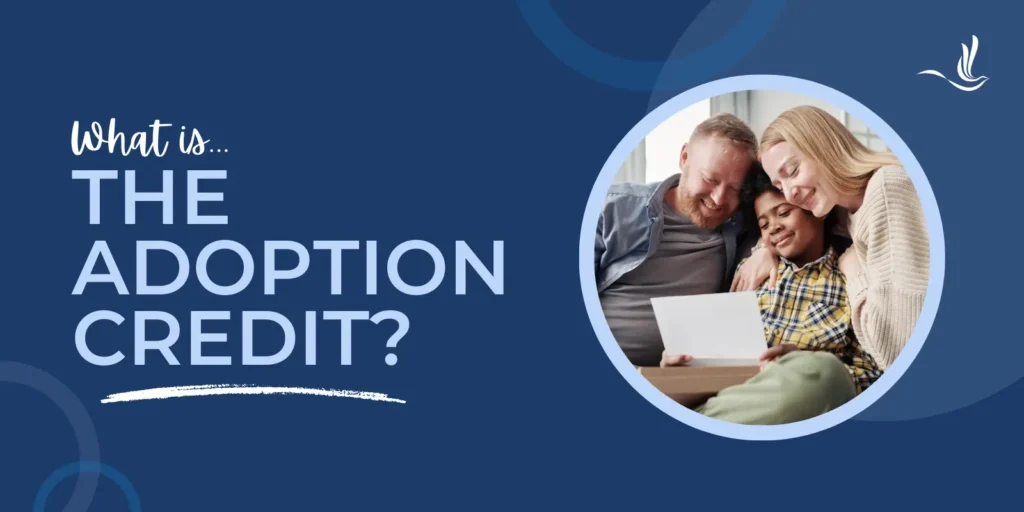Building a family can take many forms. Adoption stands as a powerful testament to the generosity and love that individuals and couples can offer to children in need. However, adoption can be an expensive process, often deterring potential parents from taking this big step. To alleviate some of the financial burdens associated with adoption, the U.S. government offers the adoption credit. This article explains what the adoption credit is, who qualifies for it, and how it can significantly ease the financial aspects of the adoption journey.
What is the Adoption Credit?
The adoption credit is a non-refundable tax credit that aims to reduce the financial burden of adoption by allowing eligible taxpayers to claim certain adoption-related expenses. For the tax year 2023, the maximum adoption credit was $15,950 per child. This amount can help cover a variety of expenses, including adoption fees, court costs, attorney fees, and other related expenses. Because it’s non-refundable, it’s limited to your tax liability for the year. However, any credit more than your tax liability may be carried forward for up to five years.
Who Qualifies for the Adoption Credit?
The adoption credit is available to individuals and couples who adopt a child under 18 or who is physically or mentally incapable of self-care. Let’s look at specific criteria for the credit.
Adoption Status
The credit applies to domestic and international adoptions. However, the timing and manner of the credit claimed can differ between the two. For domestic adoptions, expenses can be claimed before the adoption is finalized, while for international adoptions, the credit can only be claimed after the adoption is complete.
Qualified Expenses
Only certain expenses are eligible for the credit. These include reasonable and necessary adoption fees, court costs, attorney fees, travel expenses (including meals and lodging), and other expenses directly related to the legal adoption of a child. Expenses that don’t qualify can include any incurred from adopting the child of the taxpayer’s spouse.
Income Limits
The credit begins to phase out for taxpayers with modified adjusted gross incomes (MAGI) above a certain threshold. For 2023, the phase-out range starts at $239,230 and completely phases out at $279,230.
Previous Claims
The adoption credit also includes specific provisions for previous adoption claims. For instance, if you claimed a $5,000 credit for a domestic adoption in 2022 and then incurred an additional $15,000 in qualified adoption expenses in 2023 when the adoption was finalized, the maximum credit you can claim for 2023 is $10,950. This is calculated by subtracting the $5,000 previously claimed in 2022 from the $15,950 dollar limit for 2023.
Unsuccessful Claims
Additionally, the credit includes specific rules about previous unsuccessful adoption attempts. For example, consider that an individual claimed $6,500 in qualified adoption expenses for an unsuccessful adoption attempt in 2021. In 2022 and 2023, they spent an additional $12,000 on qualified adoption expenses for a successful domestic adoption finalized in 2023. The maximum adoption credit allowable in 2023 would be $9,450, which is the $15,950 dollar limit for 2023 minus the $6,500 previously claimed.
How to Claim the Adoption Credit
Claiming the adoption credit involves several steps, plus specific documentation. Here’s a simplified version of the process:
- File Form 8839, “Qualified Adoption Expenses,” with your federal tax return. This form is used to calculate and claim the credit.
- Use supporting records like receipts, invoices, court orders, and legal documents to substantiate your claims. For international adoptions, additional documentation such as foreign adoption decrees and translations might be required.
- Submit your tax return for the year in which the adoption is finalized. For domestic adoptions, expenses can be claimed in the tax year following the year they were incurred if the adoption is not yet final.
Tax Help for Those Claiming the Adoption Credit
The adoption credit is a valuable tool for families looking to grow through adoption, providing crucial financial support that can make the process more manageable. By understanding the eligibility requirements and how to claim the credit, adoptive parents can take full advantage of this benefit while easing any financial burden. Optima Tax Relief has over a decade of experience helping taxpayers with tough tax situations.
If You Need Tax Help, Contact Us Today for a Free Consultation
Publisher: Source link











